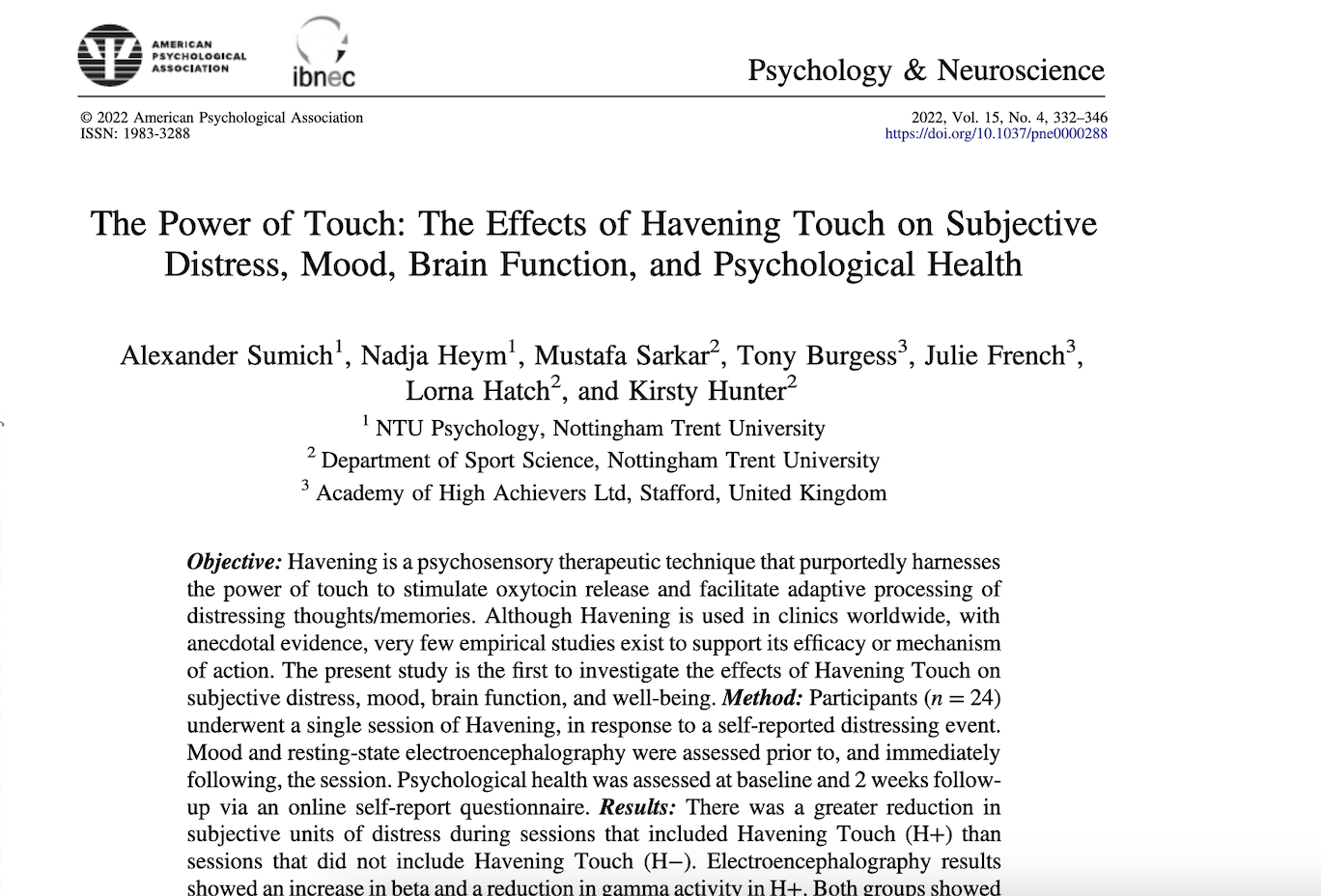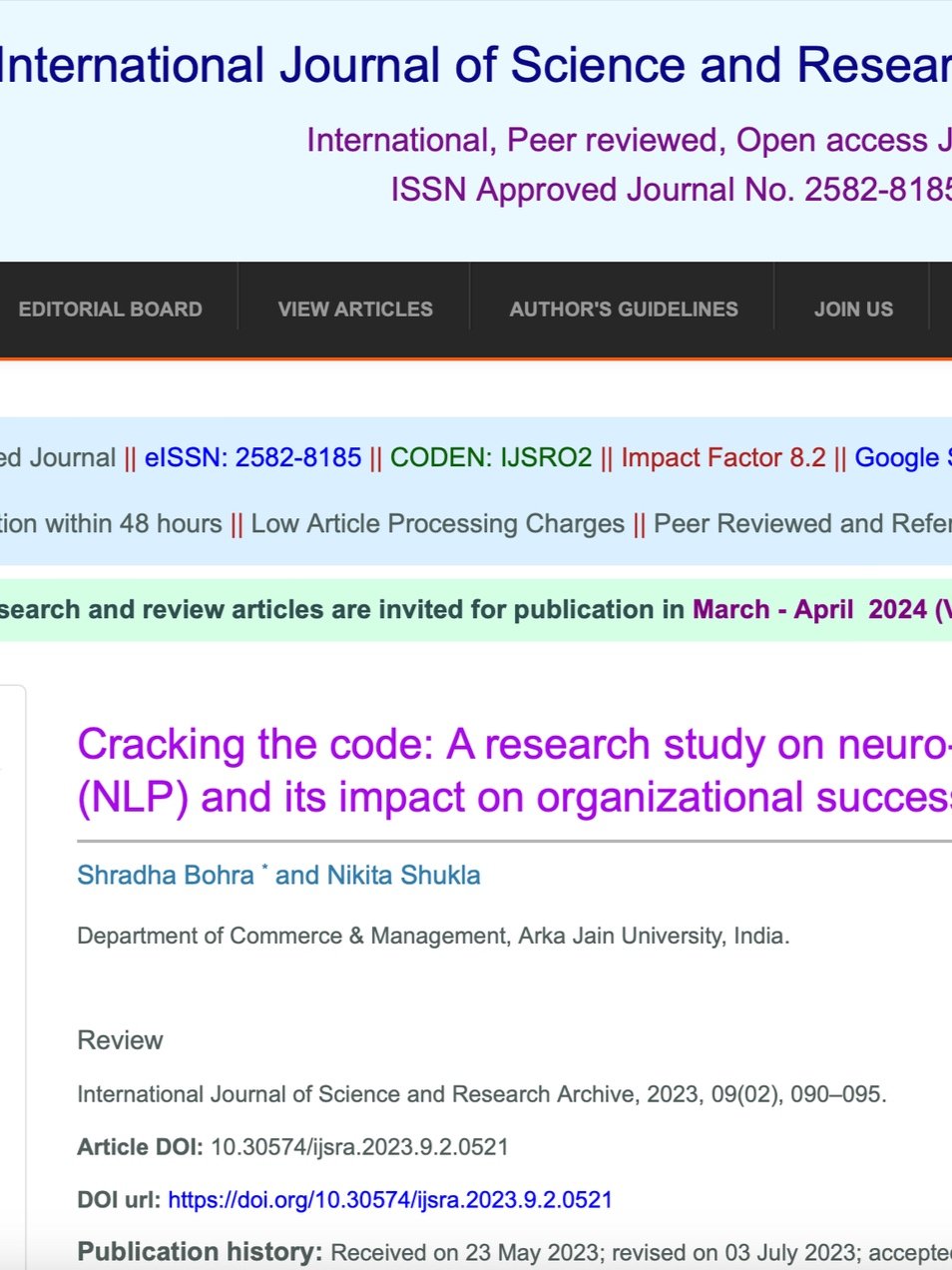FAQs
-
Yes! Hypnotherapy, NLP, and Havening Techniques are just as effective and sometimes more effective online via Zoom. Comfort and relaxation are key elements and allow clients to have sessions in their homes and safe spaces. Online sessions also allow more accessibility to all clients and clients with difficulty traveling.
-
The consequences of traumatic encoding and stressful life events can be physical and psychological. While we can't provide any guarantees, The Havening Techniques have been shown to help with phobias, chronic pain, distressing memories (broken relationships, shocking news, loss, embarrassment, etc.), victims of natural disasters (hurricanes, floods, etc.) and man-made events (war, fire, assault, home intrusion, etc.), anger, fear of abandonment, grief, cravings, PTSD, panic attacks, emotional eating, and many other problems.
-
While the Havening Techniques is a relatively new healing approach and has yet to be fully researched, we've observed that after successfully applying The Havening Techniques, it appears to be permanent in most cases. This is because The Havening Techniques are designed to alter the biological structure of the brain. The occasional return of symptoms implies either the traumatic core has not yet been found or the problem has been encoded in a different way. In particular, addictive and obsessive/compulsive behaviors, certain pain syndromes, and vasovagal (e.g., fainting) issues often need reinforcement or cannot be treated at the present time. No healing method or therapy works for all problems.
-
Yes, you don’t have to have a large negative life event to benefit from Havening. Procrastination, fear of failure, presentation jitters, roommate stress, and work conflict are just some of the challenges that I’ve helped clients work through.
-
Anybody can come in for a session, provided that they want to. If an outcome is not wanted by the client then the unconscious mind will not allow it and the session will not be effective. Wanting the results is of the utmost importance. If a session is booked for someone else who doesn’t want that result, then the session will be canceled. For example, if a family member or partner wants a loved one to quit smoking. If that loved one wants to quit, the session can be booked. If that loved one doesn’t want to quit, the session can’t be booked.
-
Hypnotherapy, Havening Techniques and NLP work with the conscious and unconscious mind. Communicating with the mind in various ways to achieve the outcome that each client wants. To get the best results, the mind needs to be alert and able to participate. The effects of drugs and alcohol on the brain create a (landscape) that cannot be worked on to bring about the client's desired change. Any session in which the client attends drunk or high will be canceled.
-
Yes, It’s ok to be skeptical. The most important things are making sure that you want the result or outcome that you’ve come in for and following the techniques. I can only guide you, you have to follow the techniques for them to be effective.
-
Myths about hypnosis, perpetuated by Hollywood movies, urban legends, and fiction books lead people to believe all kinds of things about hypnosis, including that it is somehow dangerous. Some have heard that you can go into trance and not wake up. Or that the hypnotist can make you do things you don't want to do. These things are untrue. You are always in control, always able to "come back" to full waking state at any time if you want or need to. The number one job of the unconscious mind is to protect you, and it is always on the job.
-
This is another Hollywood myth. You always have control, and you can always hear what's going on. Hypnosis is a state of relaxed deep focus. It is a natural state that you enter at least twice a day (while waking up and while falling asleep), and probably much more often than that. If at any time you are in trance and you wish to be fully awake, you can count to yourself "1 - 2- 3" and open your eyes.
-
It’s your mind, your life; you are in control. Nobody can make you do or change anything that you don’t want to. The unconscious (or sub-conscious) runs the show and it’s very powerful. If you don’t want a result, it simply won’t work. More likely if that’s the case, we wouldn’t proceed with the session to begin with. Truly wanting whatever change you came in for is very important for the process.
Important!
I am not a medical doctor or psychotherapist. I am a International Certified Havening Techniques Practitioner, Neuro-Linguistic Programming Practitioner and Certified Hypnotherapist, accredited through the IAPCP. I cannot treat medical conditions. Using Havening Techniques, Hypnotherapy, and Neuro-linguistic Programming, I guide clients through techniques to alleviate targeted event-specific stress and emotional distress and overwhelm. I provide positive coping strategies to my clients for their continued use in their self-management routines.
Havening Techniques, Hypnotherapy, and Neuro-linguistic Programming are considered (CAM) complimentary methods of healing and are as yet not recognized by traditional governing boards of medicine. Please consult your medical professional first before adding a (CAM) method to any care related to a medical condition.
Linked Articles
Read About It!















